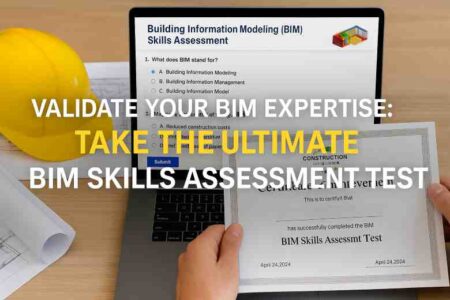Last Updated on April 18, 2023 by Admin
Advance your career in finance, marketing, digital world, management & leadership with free online business courses from the world’s top universities. Learn business skills today!
The best free online business courses with certificates. Coursera’s best online business courses, online business management courses, and free online business management courses for entrepreneurs and business professionals.
- #1. English for Career Development
- #2. Project Management: The Basics for Success
- #3. Career Success Project
- #4. High-Impact Business Writing
- #5. Effective Problem-Solving and Decision-Making
- #6. Communication in the 21st Century Workplace
- #7. Successful Negotiation: Essential Strategies and Skills
- #8. A Crash Course in Data Science
- #9. Design Thinking for Innovation
- #10. Data Analysis and Presentation Skills: The PwC Approach Final Project
#1. English for Career Development
This English for Career Development, a course created by the University of Pennsylvania, and funded by the U.S. Department of State Bureau of Educational and Cultural Affairs, Office of English Language Programs.
This course is designed for non-native English speakers interested in advancing their careers in the global marketplace.
In this course, you will learn about the job search, application, and interview process in the United States, while comparing and contrasting the same process in your home country.
This course will also allow you to explore your global career path while building your vocabulary and improving your language skills to achieve your professional goals.
Syllabus:
- Entering the Job Market
- Resumes
- Writing a Cover Letter
- Networking
- Interviewing For a Job
#2. Project Management: The Basics for Success
This course combines the essential elements of Project Management and Team Leadership into one course. Through class engagement and reflection, you will further understand leadership responsibilities and become better prepared to apply this knowledge to the project environment.
Upon completing this course, you will be able to:
- Learn about the role of high-performance teams and leadership in project management
- Learn about the tools and techniques for developing and strengthening high-performance teams and team members
- Learn about the stages in the project cycle
- Apply best practices to develop competencies and skills in planning and controlling projects to ensure successful outcomes
- Learn how to monitor project activities and assess progress
- Learn to communicate proficiently to report project status and performance to stakeholders and contribute to the organizational knowledge base
What you will learn:
- Understand the stages of the project cycle
- Monitor project activities and assess progress
- Communicate proficiently to report project status
- Develop and strengthen high-performance teams
Syllabus:
- Foundational Project Management Elements
- The WBS
- Planning and Scheduling
- Project Leadership, Teamwork, and Dealing with Difficult People
#3. Career Success Project
The Capstone Project in the Career Success Specialization is for you to apply the methods and techniques you learned in the series of courses to a personal experience, giving you a way to communicate your value to potential employers. One of the best free online business courses to be considered to learn.
You’ll focus your communication, management, negotiation, problem-solving, business writing, time management, finance, entrepreneurship, and project management skills into a single project that demonstrates your career readiness.
Upon completing this course, you will be able to:
- Apply the methods, techniques, and skills you have learned throughout the Specialization to add value, every day, to your organization by effectively gathering, synthesizing, analyzing, and presenting information
- Develop and hone your critical thinking skills as you evaluate ideas, concepts, approaches, and assumptions to arrive at a practical yet innovative solution to an organizational problem.
- Learn to use a robust strategic planning tool skillfully
- Effectively communicate information, ideas, problems, and solutions to senior-level decision-makers
What you will learn
- Add value to your organization by effectively gathering, synthesizing, and analyzing information.
- Develop practical and innovative solutions to organizational problems
- Use powerful strategic planning tools
- Communicate information, ideas, and solutions to senior-level decision-makers
- Capstone Project Assignment
- Week 2 Progress Check
- Week 3 Progress Check
- (Optional) Project Peer Feedback
- Final Assignment Submission and Graded Peer Review
- Specialization Wrap-Up
#4. High-Impact Business Writing
Effective writing is a powerful tool in the business environment. Learn how to articulate your thoughts clearly and concisely to allow your ideas to be better understood by your readers.
Improve your business writing skill by learning to select and use appropriate formats for your audience, use the correct medium, adjust your writing style accordingly, and identify your objective and communicate it.
You’ll also learn to spot, correct, and avoid the most common writing pitfalls and gain valuable experience analyzing, writing, and revising a broad spectrum of business documents. From a simple interoffice memo to a twenty-page business proposal, learn how to put good business writing to work for you.
Upon completing this course, you will be able to:
- Write effective business communications, including bad news, good news, persuasive writing, presentations, emails, memos, business reports, and press releases
- Learn how to edit and proofread business documents
- Learn how to write for a global market
What you will learn
- Write effective presentations, emails, memos
- Edit and proofread business documents
- Create business reports and press releases
- Spot, correct, and avoid the most common writing pitfalls
Syllabus
- Introduction to Business Writing
- Spelling, Grammar, Sentence, and Paragraphs
- Document Types and their Considerations
- Finalizing Formal Document, Informal Written Communication, and Social Media
How Better Excavator Parts Procurement Can Improve Project Timelines
Apprenticeship to Project Lead: Mapping Skill Milestones Through Roofing Software Workflows
How Much Can You Borrow for a Home Loan? 10 Factors That Determine Your Limit
Digital Construction Career Competency Test 2025: Assess Your Skills for the Future of Construction
Take the Ultimate BIM Skills Assessment Test: Validate Your BIM Expertise
AI Interview Copilot for Civil Engineers: Your Ultimate Free Mock Interview Practice Tool (2025)
#5. Effective Problem-Solving and Decision-Making
Critical thinking – applying scientific methods and logical reasoning to problems and decisions – is the foundation of practical problem solving and decision making. Critical thinking enables us to avoid common obstacles, test our beliefs and assumptions, and correct distortions in our thought processes. One of the best free online business courses you can learn on Coursera.
Gain confidence in assessing problems accurately, evaluating alternative solutions, and anticipating likely risks. Learn how to use analysis, synthesis, and positive inquiry to address individual and organizational issues and develop the critical thinking skills needed in today’s turbulent times. Using case studies and situations encountered by class members, explore successful models and proven methods readily transferable on-the-job.
Upon completing this course, you will be able to:
- Choose and apply appropriate problem solving and decision-making processes and methods
- Identify common obstacles to practical problem solving and decision making
- Recognize the human variable in problem-solving and decision making
- Assess major conceptual blocks and significant situational challenges
- Apply concepts to enhancing personal development and organizational performance
- Explain the key elements of problem-solving and decision making and the barriers associated with them
What you will learn
- Apply appropriate problem-solving and decision-making processes
- Identify common obstacles to practical problem-solving and decision-making
- Use analysis, synthesis, and positive inquiry to address organizational problems
- Evaluate solutions and anticipate likely risks
Syllabus
- Introduction to Problem Solving
- Charts and Diagrams
- Decision Making Methods
- Implementing Decisions
#6. Communication in the 21st Century Workplace
In today’s fast-paced business environment, employees at all levels are asked to handle more tasks, meet more deadlines, take on more responsibilities, and adapt to more change. Added to these challenges is the constantly shifting workplace diversity, where coworkers cope with generational, gender, age, and cultural differences.
Both verbal and nonverbal, communication is at the foundation of everything we do and say and is especially important in the 21st-century workplace. The good news is that communication is a learned skill and can be improved upon with the proper training.
This course aims to heighten students’ awareness of workplace communication and add new interpersonal skills to become a more competent communicators.
Target areas include the process and functions of communication, behavioral patterns, perceptions as reality, verbal and nonverbal cues, and behaviors, confidence, assertiveness, tact, anger management, criticism and constructive feedback, conflict resolution, team building, leadership, interviewing, and communicating more effectively with technology (email, Skype, texting, etc.).
Upon completing this course, you will be able to:
- Define communication and its role in the workplace
- Describe the benefits of effective communication in the workplace
- Identify and explain the most common audiences and techniques for communicating with each audience
- Identify and solve common obstacles to effective communication
- Summarize the 5 Step Technique and demonstrate its usefulness in communicating with your manager
- Discuss the best approaches and communication techniques for delivering bad news to your manager
- Describe ways to make positive connections with your staff.
- Discuss strategies for deciphering the communication styles of executive managers
- Discuss strategies for identifying the characteristics and drivers of executive managers
- Discuss methods for persuading executive management
- Identify best practices for working successfully with virtual/remote teams
- Apply proven techniques for effective conference calls and webinars
What you will learn
- Understand the benefits of effective communication in the workplace
- Identify and solve common obstacles to effective communication
- Decipher the communications styles of executive managers
- Apply proven techniques for effective conference calls and webinars
Syllabus
- Communicating With Peers
- Communicating With Your Manager
- Communicating With Executives
- Communicating With Your Direct Reports
#7. Successful Negotiation: Essential Strategies and Skills
We all negotiate daily. On a personal level, we deal with friends, family, landlords, car sellers, and employers, among others. Negotiation is also the key to business success. No business can survive without profitable contracts. Within a company, negotiation skills can lead to your career advancement.
I hope you will join the hundreds of thousands of learners who have made “Successful Negotiation” one of the most popular and highly-rated MOOCs worldwide.
In the course, you’ll learn about and practice the four steps to a successful negotiation:
- (1) Prepare: Plan Your Negotiation Strategy
- (2) Negotiate: Use Key Tactics for Success
- (3) Close: Create a Contract
- (4) Perform and Evaluate: The End Game To complete this course and improve your ability to negotiate,
Syllabus
- Welcome to Successful Negotiation!
- Prepare: Plan Your Negotiation Strategy
- Negotiate: Use Key Tactics for Success
- Close: Create a Contract
- Perform and Evaluate: The End Game
- Practice Your Negotiation Skills
- Final Examination
#8. A Crash Course in Data Science
By now, you have heard about data science and big data. This one-week class will provide a crash course in what these terms mean and how they play a role in successful organizations.
This class is for anyone who wants to learn all the data science action is about, including those who will eventually need to manage data scientists. The goal is to get you up to speed on data science without all the fluff as quickly as possible. We’ve designed this course to be as convenient as possible without sacrificing any essentials.
This is a focused course designed to get you up to speed in data science rapidly. Our goal was to make this as convenient as possible for you without sacrificing any important content. We’ve left the technical information aside so that you can focus on managing your team and moving it forward.
After completing this course, you will know;
- 1. How to describe the role data science plays in various contexts
- 2. How statistics, machine learning, and software engineering play a role in data science
- 3. How to describe the structure of a data science project
- 4. Know the key terms and tools used by data scientists
- 5. Identify a successful and an unsuccessful data science project 3.
What you will learn
- Describe Data Science’s role in various contexts
- Understand how Statistics and Machine Learning affect Data Science
- Use the key terms used by a data scientist.
- Predict whether a Data Science project will be successful
#9. Design Thinking for Innovation
Today innovation is everyone’s business. Whether you are a manager in a global corporation, an entrepreneur starting up, in a government role, or a teacher in an elementary school, everyone is expected to get lean – to do better with less. And that is why we all need design thinking. At every level in every kind of organization, design thinking provides the tools you need to become an innovative thinker and uncover creative opportunities – you’re just not seeing them yet.
In this course, developed at the Darden School of Business at the University of Virginia and taught by top-ranked faculty, we provide an overview of design thinking and work with a model containing four key questions and several tools to help you understand design thinking as a problem-solving approach. We also look at several stories from different organizations that used design thinking to uncover compelling solutions.
What you will learn
- What design thinking is and when to use it
- How to prepare to see and take action when the opportunity arises
- How to use design thinking to generate innovative ideas
- How to take the many ideas you generate and determine which ones are likely to produce specific, desired outcomes
Syllabus
- What Is Design Thinking?
- Preparing Your Mind for Innovation
- Idea Generation
- Experimentation
- Final Assignment
#10. Data Analysis and Presentation Skills: The PwC Approach Final Project
In this Capstone Project, you’ll bring together all the new skills and insights you’ve learned through the four courses. You’ll be given a ‘mock’ client problem and a data set.
You’ll need to analyze the data to gain business insights, research the client’s domain area, and create recommendations. You’ll then need to visualize the data in a client-facing presentation. You’ll bring it all together in a recorded video presentation. One of the best free online business courses to learn on Coursera.
PricewaterhouseCoopers LLP created this course with an address at 300 Madison Avenue, New York, New York, 10017.
Syllabus
- Understanding the Business Problem
- Analyzing the Business Problem
- Creating a visual representation of your analysis results
- Building a presentation for the client meeting
- Presenting your results to the client
Related Posts:








